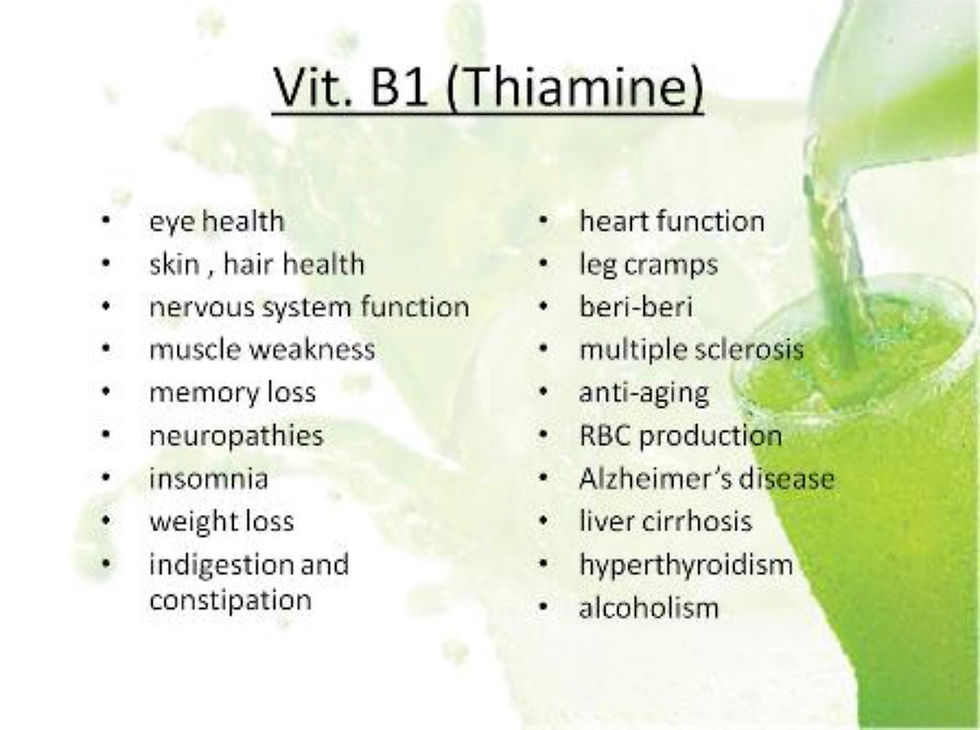
The Health Benefits of Vitamin B1
- I.V Vitamin Therapy Clinic | USA

- Mar 17, 2018
- 2 min read
Updated: Mar 4, 2025
IV Vitamin Therapy Clinic specializes in vitamin deficiency. Thiamine is a vitamin, also called vitamin B1. Vitamin B1 is found in many foods including yeast, cereal grains, beans, nuts, and meat. It is often used in combination with other B vitamins, and found in many vitamin B complex products. People take thiamine for conditions related to low levels of thiamine (thiamine deficiency syndromes), including beriberi and inflammation of the nerves (neuritis) associated with pellagra or pregnancy.
Thiamine is also used for digestive problems including poor appetite, ulcerative colitis, and ongoing diarrhea.
Thiamine is also used for AIDS and boosting the immune system, diabetic pain, heart disease, alcoholism, aging, a type of brain damage called cerebellar syndrome, canker sores, vision problems such as cataracts and glaucoma, motion sickness, and improving athletic performance. Other uses include preventing cervical cancer and progression of kidney disease in patients with type 2 diabetes.
Some people use thiamine for maintaining a positive mental attitude; enhancing learning abilities; increasing energy; fighting stress; and preventing memory loss, including Alzheimer's disease.
Healthcare providers give thiamine shots for a memory disorder called Wernicke's encephalopathy syndrome, other thiamine deficiency syndromes in critically ill people, alcohol withdrawal, and coma.
How does it work?
Thiamine is required by our bodies to properly use carbohydrates.

About the Author
IV Vitamin Therapy Clinic, an industry leader, has been providing over one million IV Vitamin infusions in the past decade. All infusions are prepared in a sterile laboratory before being administered. They provide IV Therapy drips such as Revitalize IV, Myers Cocktail IV, High Dose Vitamin C, Immune Boost and Iron Infusion IV.
Monday to Friday 10AM to 5:00PMSaturday 11:00AM to 5:00PM
